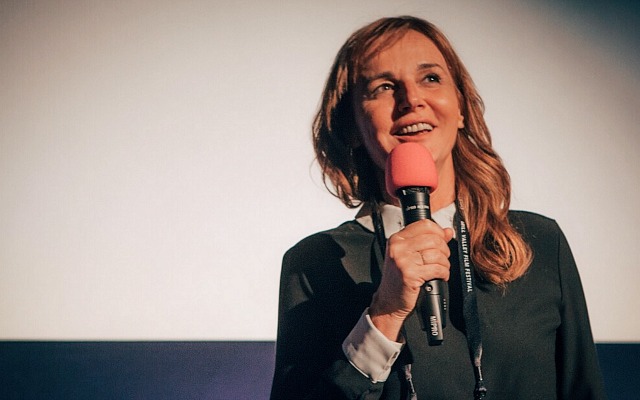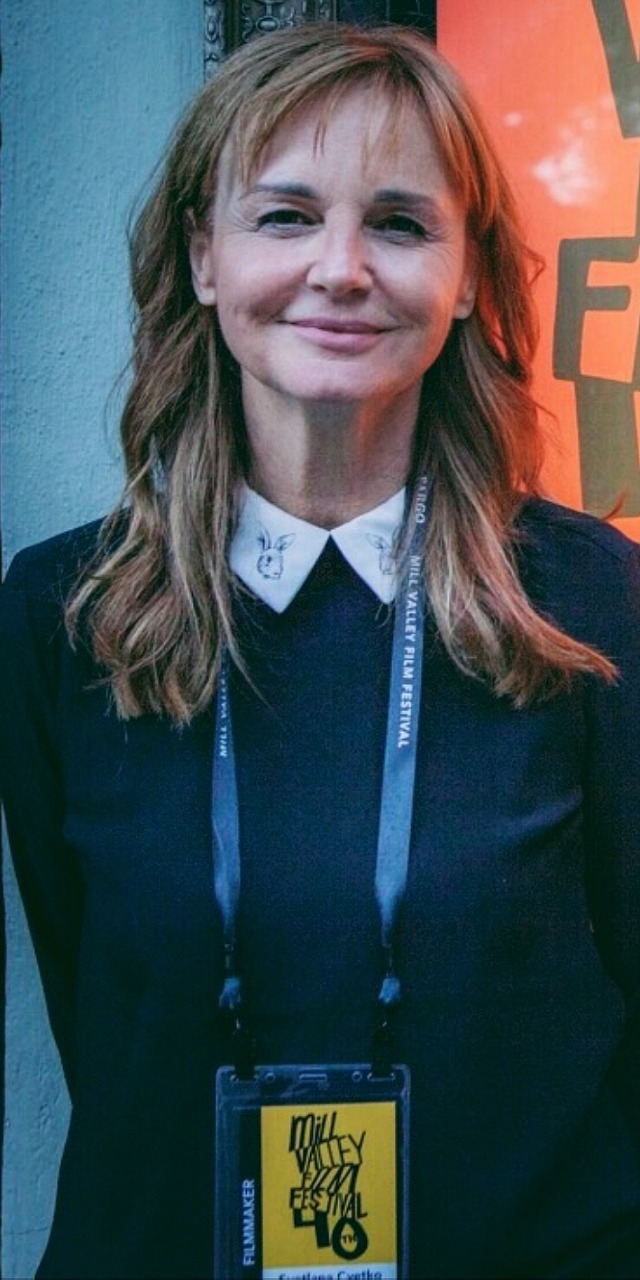HE’s own Svetlana Cvetko has been making the film-festival rounds with her short, Yours Sincerely, Lois Weber, which was exec produced by Elizabeth Banks. Weber (1879 – 1939) is commonly regarded as “the most important female director the American film industry has ever known“, and certainly was the industry’s most prolific director in the silent-film era.
Last night the doc screened at the Mill Valley Film Festival; it next shows at Arkansas’s Hot Springs Documentary Festival on 10.12, and then the Savannah Film Festival on 10.24. I’ve seen it — it wakes you up to the life of a major pathfinder and makes you want to know a lot more. Weber’s life should be made into a feature…hello? Here’s the film’s Facebook page

Svetlana Cvetko, director of Yours Sincerely, Lois Weber, following last night’s screening at the Mill Valley Film Festival. (Photo by Allison Levenson.)
From the Wiki page: Lois Weber (June 13, 1879 – November 13, 1939) was an American silent film actress, screenwriter, producer, and director, who is considered “the most important female director the American film industry has known”,[1] and “one of the most important and prolific film directors in the era of silent films”.[2][3] Film historian Anthony Slide asserts that: “Along with D.W. Griffith, Weber was the American cinema’s first genuine auteur, a filmmaker involved in all aspects of production and one who utilized the motion picture to put across her own ideas and philosophies.”[4]
Weber produced an oeuvre which Jennifer Parchesky argues is comparable to Griffith’s in both quantity and quality, and brought to the screen her concerns for humanity and social justice in an estimated 200 to 400 films, of which as few as twenty have been preserved, and has been credited by IMDb with directing 135 films, writing 114, and acting in 100.
Weber was “one of the first directors to come to the attention of the censors in Hollywood’s early years”.
Weber has been credited as pioneering the use of the split-screen technique to show simultaneous action in her 1913 film Suspense. In collaboration with her first husband, Phillips Smalley, in 1913 Weber was “one of the first directors to experiment with sound”, making the first sound films in the United States, and was also the first American woman to direct a full-length feature film when she and Smalley directed The Merchant of Venice in 1914, and in 1917 the first woman director to own her own film studio.
During the war years, Weber “achieved tremendous success by combining a canny commercial sense with a rare vision of cinema as a moral tool”. At her zenith, “few men, before or since, have retained such absolute control over the films they have directed — and certainly no women directors have achieved the all-embracing, powerful status once held by Lois Weber.” By 1920, Weber was considered the “premier woman director of the screen and author and producer of the biggest money-making features in the history of the film business”.













